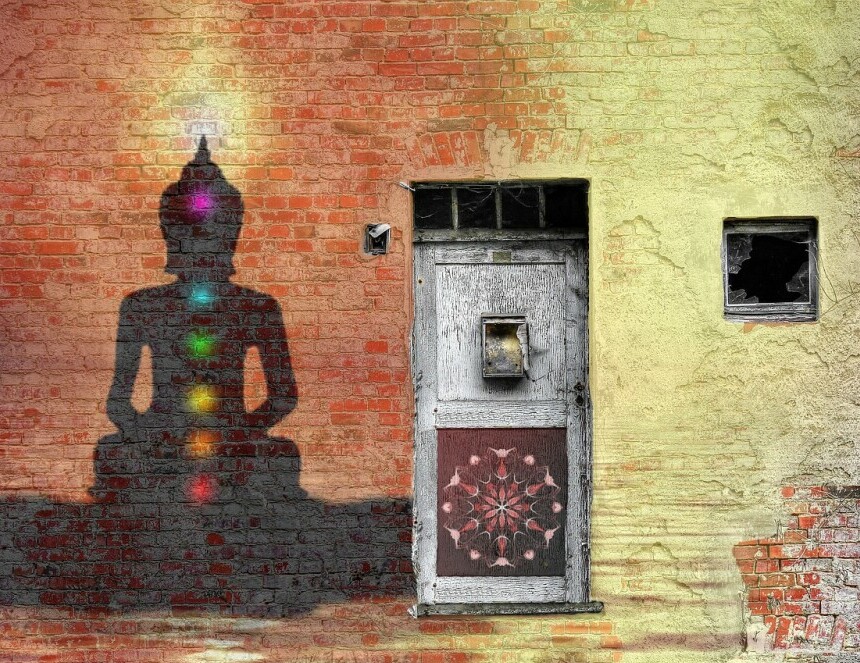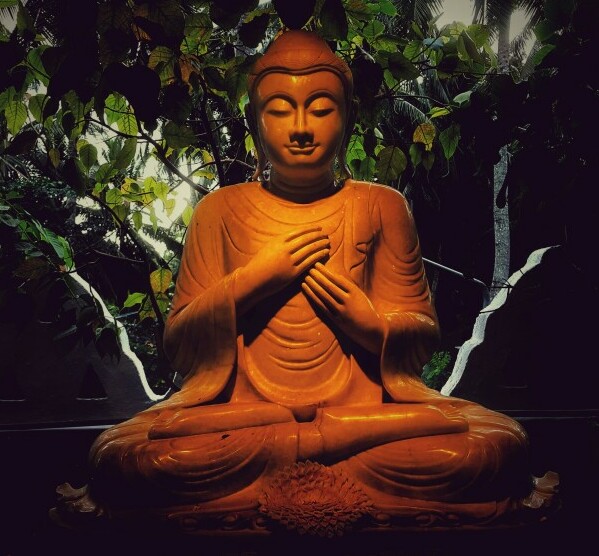A Journey Into Eastern Philosophy And Spirituality
In recent years, there has been a growing interest in Eastern Philosophy and Spirituality in the Western World. Many people in the West are increasingly drawn to the wisdom and teachings that have originated from ancient civilizations such as India, China, and Japan.
The appeal of Eastern Philosophy lies in its ability to offer guidance for personal growth and spiritual development, providing individuals with a deeper understanding of themselves and the world around them.
Meditation is of course a big one that has grown in popularity massively but you also have practices like Yoga, Tai Chi, Acupuncture and Herbalism that are all getting a lot of attention.
Which is exactly what we will look to dive into and explore more with this article…
Discovering the Wisdom of the East: A Journey into Eastern Philosophy and Spirituality
Key Takeaways
- Eastern Philosophy and Spirituality offer a unique allure and perspective on life.
- Understanding the History and Origins of Eastern Philosophy is crucial to fully grasp its principles.
- Core principles of Eastern philosophy include the trifecta of Balance, Harmony, and the Interconnectedness of all Things.
- Meditation and Mindfulness play a significant role in Eastern Spirituality.
- Applying Eastern Wisdom in daily life can lead to a more fulfilling existence.
The Roots of Eastern Philosophy: Understanding the History and Origins

To truly appreciate Eastern Philosophy, it is important to delve into its historical roots. Ancient civilizations like India, China, and Japan have played a significant role in shaping the philosophical traditions we see today. These cultures were deeply influenced by their respective religions and mythologies, which laid the foundation for their philosophical beliefs.
Although, really it is not just these countries but the likes of Nepal, Tibet, Indonesia, Thailand, Vietnam and Korea are all very spiritual places.
However, for this article we will look at the general ideas and teachings of Philosophy and Spirituality across the whole Eastern Hemisphere.
The Core Principles of Eastern Philosophy and Spirituality: An Overview

Eastern Philosophy encompasses a wide range of beliefs and principles, but there are some core concepts that are prevalent across different traditions. One such concept is Dharma, which refers to one’s duty or moral responsibility.
In Eastern thought, the Pursuit of Truth is also highly valued, as it is believed to lead to enlightenment and liberation from suffering.
Additionally, non-attachment and detachment are emphasized as a means to find inner peace and freedom from desires.
Compassion and empathy are also central to Eastern thought, as they promote harmony and interconnectedness among all beings.
The Role of Meditation and Mindfulness in Eastern Spirituality

Meditation and Mindfulness practices are integral to Eastern Spirituality. Meditation has been scientifically proven to have numerous benefits for mental and physical health, including reducing stress, improving focus, and promoting emotional well-being.
Mindfulness, on the other hand, involves being fully present in the moment and cultivating awareness of one’s thoughts, feelings, and sensations.
By incorporating these practices into daily life, individuals can experience greater clarity, peace, and self-awareness.
So THIS is a big one but another you will hear people talk a lot about is…
The Concept of Karma and Reincarnation in Eastern Philosophy

OK, so maybe not reincarnation as much but really the general Idea of Karma a lot of people know about. What you put into this world you will get back. One good turn deserves another. They will get what is coming to them. What comes around goes around and so on…
And this along with reincarnation, is one of the most well-known aspects of Eastern Philosophy.
Karma refers to the law of cause and effect, where one’s actions have consequences that will be experienced in this life or future lives.
Reincarnation, on the other hand, is the belief in the cycle of birth, death, and rebirth. In Eastern Philosophy it actually says that if you do bad (or good) in the life you will get your Karma in the next if you have not got it already.
Whether true or not it is a good model to follow. These concepts highlight the importance of Personal Responsibility and the idea that our actions in this life will shape our future experiences.
The Importance of Balance and Harmony in Eastern Thought

Eastern Philosophy places great emphasis on finding balance and harmony in all aspects of life. This can be seen in various traditions, such as Taoism, which emphasizes the concept of Yin and Yang.

Yin represents the feminine, passive, and receptive qualities, while Yang represents the masculine, active, and assertive qualities.
The goal is to find a harmonious balance between these opposing forces, both within ourselves and in our interactions with others.
The Significance of Nature and the Universe in Eastern Spirituality
Eastern Spirituality often emphasizes the interconnectedness of all things and the reverence for nature. Many Eastern Traditions view nature as a source of wisdom and inspiration.
In Traditional Chinese Medicine (TCM), for example, there is a belief in the flow of energy called chi, which is believed to be present in all living beings. By aligning ourselves with the natural rhythms of the universe, we can cultivate a deeper sense of connection and harmony.
The Role of the Guru and Spiritual Teacher in Eastern Philosophy
In Eastern philosophy, finding a spiritual guide or mentor is considered crucial for one’s spiritual journey. A Guru or Spiritual Teacher can provide guidance, support, and wisdom to help individuals navigate their path towards self-realization.
The relationship between Guru and Disciple is based on trust, respect, and a deep commitment to personal growth.
The Impact of Eastern Philosophy on Western Thought and Culture
Eastern Philosophy has had a profound influence on Western thought, particularly in the fields of philosophy, psychology, and spirituality. The teachings of Eastern Philosophers such as Lao Tzu, Confucius, and Buddha have inspired Western thinkers and have contributed to the development of new ideas and perspectives.
Practices like Yoga and Meditation, which originated in the East, have also gained immense popularity in the West as tools for self-care and personal transformation.
Exploring Different Eastern Traditions: Buddhism, Taoism, Hinduism, and more

Eastern Philosophy encompasses a rich tapestry of traditions, each with its own unique characteristics. Buddhism, for example, focuses on the pursuit of enlightenment and the alleviation of suffering.
Taoism emphasizes living in harmony with the natural flow of life. Hinduism encompasses a wide range of beliefs and practices, including the pursuit of self-realization through Yoga and Meditation.
Exploring these different traditions allows individuals to gain a broader understanding of Eastern Philosophy and find resonance with the teachings that resonate most with them.
Applying Eastern Wisdom in Daily Life: Practical Tips and Advice
While Eastern Philosophy may seem abstract at times, it is ultimately meant to be applied in daily life. There are practical ways to incorporate Eastern practices into our routines to cultivate a more fulfilling existence.
This can include setting aside time for Meditation or Mindfulness practices, practicing acts of kindness and compassion towards others, and finding ways to connect with nature regularly.
By integrating these principles into our lives, we can experience greater peace, happiness, and fulfilment.
Learning Eastern Philosophies For Beginners
Embarking on a Journey into Learning about Eastern philosophies can be a transformative experience – offering Insights into profound concepts and ways of living that have been refined over centuries.
So whether you’re drawn to the tranquillity of Zen Buddhism, the holistic approach of Taoism, or the spiritual depth of Hinduism, as just a few examples there’s a wealth of wisdom waiting to be discovered.
It is well worth taking this time to educate yourself about this and some key principles and practices to help beginners navigate the vast landscape of Eastern philosophies are as follows;
1. Cultivate an Open Mind:
Approach your exploration of Eastern philosophies with an open mind and a willingness to question your existing beliefs. Recognize that these philosophies may offer alternative perspectives that challenge conventional Western thought.
2. Start with the Basics:
Begin your journey by familiarizing yourself with the foundational texts and teachings of the tradition you’re interested in. For example, explore the Bhagavad Gita and the Upanishads for insights into Hinduism, or dive into the Tao Te Ching for a glimpse into Taoist principles.
3. Practice Mindfulness:
Many Eastern Philosophies emphasize the practice of mindfulness, which involves being fully present in the moment and cultivating awareness of one’s thoughts, feelings, and surroundings.
Experiment with mindfulness meditation techniques to develop this essential skill.
4. Embrace Simplicity:
Simplify your life and focus on what truly matters. Drawing Inspiration from Zen Buddhism, learn to appreciate the beauty of simplicity and cultivate a sense of contentment with less.
5. Explore Inner Harmony:
Eastern Philosophies often emphasize the importance of finding inner harmony and balance. Incorporate practices such as Yoga, Qigong, or Tai Chi into your routine to promote physical health and mental well-being.
6. Seek Guidance:
Consider seeking guidance from teachers or mentors who have a deep understanding of the Eastern tradition you’re exploring. They can offer valuable insights and support as you navigate your journey.
7. Reflect and Contemplate:
Take time to reflect on the teachings you encounter and contemplate their relevance to your own life. Journaling can be a powerful tool for processing your thoughts and insights.
8. Be Patient:
Remember that understanding and embodying Eastern philosophies is a lifelong journey. Be patient with yourself and allow yourself to grow and evolve at your own pace.
By approaching Eastern Philosophies with curiosity, openness, and a commitment to practice, beginners can embark on a profound journey of self-discovery and spiritual growth.
So take the first step today, and immerse yourself in the rich tapestry of Eastern wisdom.
Conclusion: The Enduring Appeal of Eastern Philosophy and Spirituality
The enduring appeal of Eastern philosophy lies in its timeless wisdom and its relevance for modern life.
In a world that often feels chaotic and disconnected, Eastern teachings offer guidance on how to find inner peace, cultivate compassion, and live in harmony with ourselves and others.
By exploring the rich traditions of Eastern philosophy, we have the potential for personal growth and spiritual transformation, leading to a more meaningful and fulfilling existence.
If we compare this to Western thought it is very concerning how apart we have drifted but in a world that is now more connected than ever one very good thing is how much more of this Information is available.
I shall finish this article up here but if Eastern Philosophy Interests you then take a look at our related blog posts HERE<<
Many thanks for reading (if you have got this far)
All the best;
Alex B. Chivers

